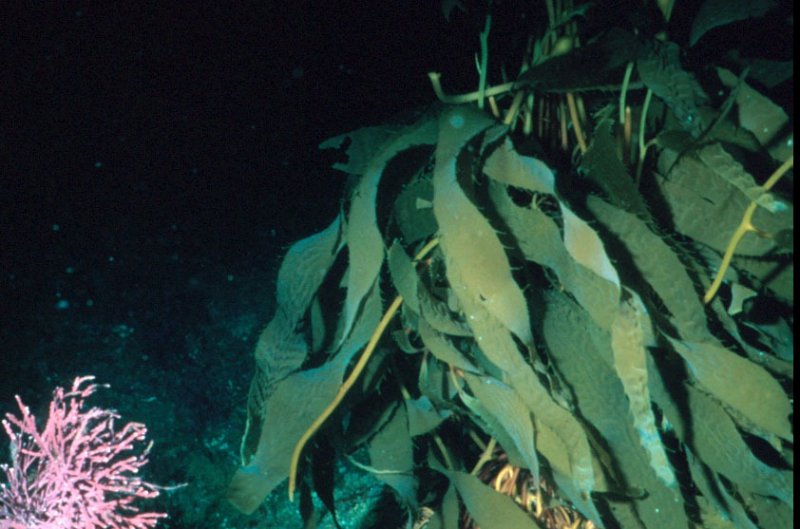
Kelp, seen in waters near Blanco islet, an island that is part of Tierra del Fuego on the southernmost tip of South America. Photo by Shane Anderson/NOAA/Wikimedia
March 12 (UPI) -- For the first time since 1973, scientists have surveyed the health of remote kelp forests of Tierra del Fuego, the southernmost tip of South America. Researchers found the ecosystem largely unchanged from 45 years ago, with similar abundances of kelp, sea urchins and sea stars.
A study published this week in the journal PLOS One shows the ecosystem remains healthy, but researchers warn this may not always be the case. Kelp forests host tremendous marine biodiversity. Just as healthy forests on land are vital to diversity of animals, healthy kelp forests are essential to a wide array of marine species. Kelp forests can even protect shell-forming organisms from dangerous spikes in acidity.
In some parts of the world, rising water temperatures are transforming their makeup. But remote kelp forests are less well understood. To find out how some of the world's most remote kelp forests off the coast of South America are doing, scientists utilized both the observations of scuba divers and a catalogue of Landsat satellite images.
The observations of scuba divers suggest the kelp forests of Tierra del Fuego host similar levels of biodiversity to what they hosted 45 years ago. The analysis of Landsat satellite images showed the area's kelp forest cover has grown and declined in a four-year cycle that reflects changes in sea surface temperature and El Niño-Southern Oscillation rainfall patterns.
When scientists conducted a survey of fish populations among the kelp forests, they found the abundance of different species varied greatly in different locations. Distribution patterns showed the variability was largely dictated by exposure to ocean waves.
While the latest research, published this week in the journal PLOS One, is good news, scientists suggest it's unlikely Tierra del Fuego's kelp forests will be spared from the effects of climate change indefinitely.
To mitigate the impacts of rising water temperatures on kelp forest ecosystems, scientists recommend policy makers spearhead more aggressive conservation efforts. For example, the expansion of the newly designated Yaganes Marine National Park to include coastal waters along the southern tip of South America could help protect the kelp forests of Tierra del Fuego.
"The kelp forest of the extreme tip of South America are some of the most pristine on earth and have not changed substantially since the early 1970s, when they were first surveyed," Alan Friedlander, researcher with National Geographic Society's Pristine Seas project, said in a news release. "Re-examination of this remote region is incredibly valuable in this age of climate change and gives us a better understanding of how these ecosystems function in the absence of direct human impacts."
No comments:
Post a Comment